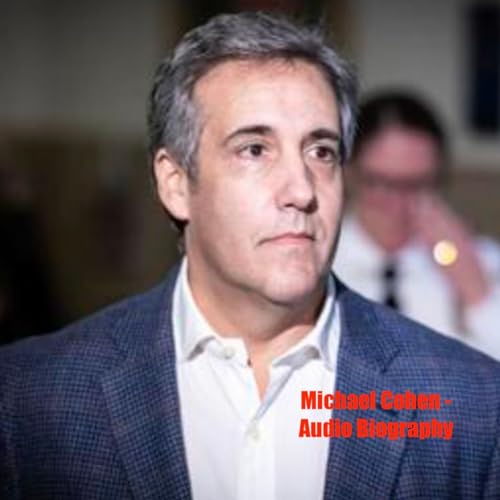Michael Cohen: From Trump's Fixer to His Greatest Adversary In the ever-unfolding saga of Donald Trump's legal battles, few figures loom larger than Michael Cohen, the former personal attorney turned star witness against his once-revered boss. Cohen, whose journey from being Trump's loyal "fixer" to his most damaging accuser has been nothing short of extraordinary, found himself at the center of the courtroom drama once again as he took the stand in the former president's hush-money trial on Monday. Born in 1966 on Long Island, New York, Cohen's early life gave little indication of the tumultuous path that lay ahead. The son of a nursery school teacher and a Holocaust survivor, Cohen grew up in a working-class family, attending American University in Washington, D.C., where he earned degrees in political science and law. It was during his time as a student that Cohen's penchant for navigating the gray areas of the law first manifested itself. In 1988, he was caught up in a controversial scheme to rig the election for student body president, ultimately receiving a suspension for his role in the scandal. Little did he know that this early brush with ethical transgressions would presage a future defined by walking the line between legality and criminality. Cohen's entry into the world of Donald Trump came in the mid-2000s when he went to work for the Trump Organization as a lawyer and fixer, tasked with handling the often-thorny legal and personal affairs of the real estate mogul-turned-reality TV star. It was a role that Cohen embraced with unwavering loyalty, becoming Trump's trusted confidant and enforcer, willing to go to extraordinary lengths to protect his boss's interests and reputation. "I was riding the crest of a wave, Mr. Trump was my entire world," Cohen would later recall in his memoir, "Disloyal." For over a decade, Cohen played the role of the consummate fixer, deploying a potent combination of threats, payoffs, and legal maneuvering to quash any potential scandals or controversies that could tarnish Trump's brand. From brokering hush-money payments to alleged former mistresses like Stormy Daniels and Karen McDougal, to threatening legal action against critics and journalists, Cohen's tactics were often ruthless and uncompromising, reflecting the win-at-all-costs ethos of his boss. Yet, it was this very willingness to cross ethical lines that would ultimately prove Cohen's undoing. In 2018, as Special Counsel Robert Mueller's investigation into Russian interference in the 2016 election heated up, Cohen found himself in the crosshairs of federal prosecutors for his role in the hush-money payments and other financial crimes. Facing mounting legal pressure and the prospect of decades in prison, Cohen made the fateful decision to turn against Trump, pleading guilty to campaign finance violations, tax evasion, and lying to Congress. In a stunning courtroom admission, Cohen declared that the hush-money payments were made "in coordination with and at the direction of" then-candidate Trump, directly implicating the president in a conspiracy to cover up alleged affairs that could have derailed his campaign. Cohen's public break with Trump was seismic, shattering the once-unbreakable bond between the fixer and his boss. In a series of congressional testimonies and a tell-all memoir, Cohen unleashed a torrent of damaging allegations against Trump, painting a portrait of a man driven by greed, narcissism, and a willingness to engage in unethical and potentially illegal behavior. "He is a racist. He is a con man. And he is a cheat," Cohen declared in his explosive testimony before the House Oversight Committee in 2019, effectively renouncing the very man he had once defended with such fervor. Cohen's transformation from faithful protector to chief accuser was not without its personal costs. His decision to cooperate with federal investigators resulted in a three-year prison sentence, which he served from 2019 to 2021, during which time he was disbarred and estranged from his family. Yet, for Cohen, the decision to come clean and hold Trump accountable was a necessary act of atonement. "I am no longer that guy who would blindly follow and obey orders," he wrote in his memoir. "I am now a man who has accepted his mistakes, atoned for them, and is ready to make amends." As Cohen took the stand in the latest chapter of Trump's legal saga, the hush-money trial in Manhattan, his role as the prosecution's star witness was both pivotal and fraught with baggage. While his insider knowledge of the alleged hush-money scheme could prove damaging to Trump's defense, the former president's legal team was expected to launch a blistering attack on Cohen's credibility, painting him as a disgruntled ex-employee with a vendetta against his old boss. Yet, for Cohen, the opportunity to testify against Trump represents more than just a chance to seek retribution or redemption. It is a chance to hold the man he once revered ...
続きを読む
一部表示
 2024/05/1411 分
2024/05/1411 分
